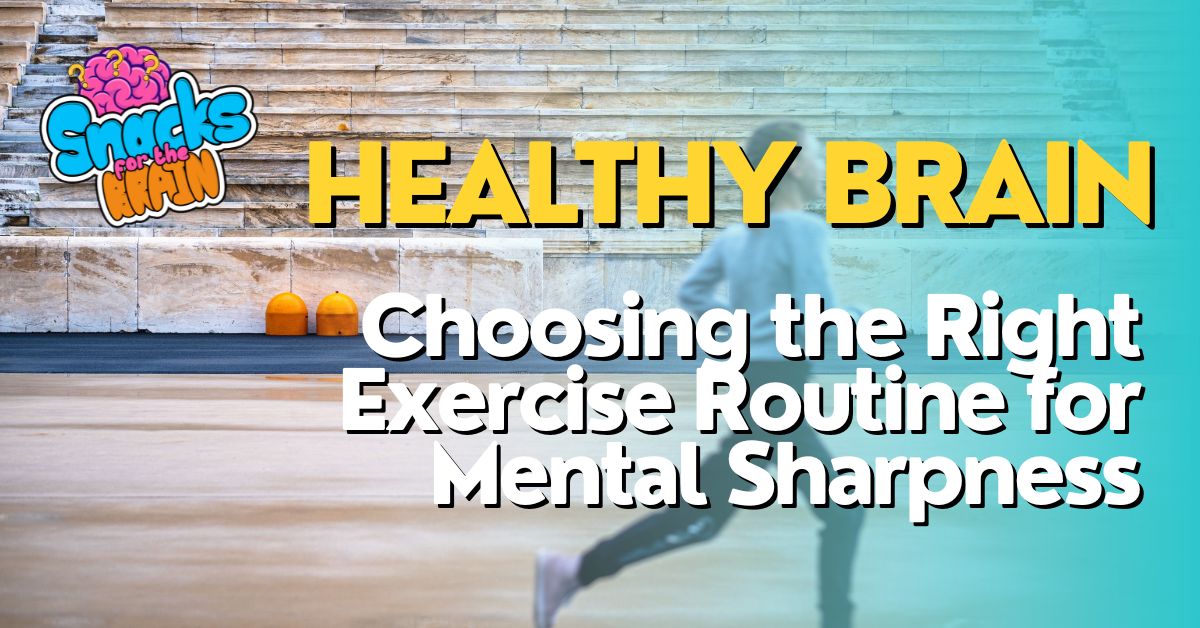Social support plays a crucial role in stress management and brain health. In today’s fast-paced and demanding world, stress has become a common part of our lives. It can have detrimental effects on our mental health and overall well-being if not properly managed. This blog post aims to explore the importance of social support in stress management and brain health, and provide insights into how it can be beneficial for individuals.
Key Takeaways
- Social support is crucial for managing stress and maintaining brain health.
- Stress can have negative effects on brain function and mental health.
- Social support includes emotional, instrumental, and informational support.
- Social support can reduce stress and improve brain health.
- Building and maintaining social support networks is important for coping with life stressors and promoting brain health.
The Impact of Stress on Brain Function and Mental Health
Stress has been found to have negative effects on the brain and mental health. When we experience stress, our bodies release cortisol, a hormone that helps us respond to the stressful situation. However, chronic stress can lead to an overproduction of cortisol, which can damage brain cells and impair cognitive function. This can result in memory problems, difficulty concentrating, and increased risk of mental health disorders such as anxiety and depression.
Managing stress is crucial for overall well-being. By reducing stress levels, we can improve our cognitive function, enhance our mood, and protect our mental health. Social support plays a vital role in stress management by providing individuals with a network of people who can offer emotional support, practical assistance, and information. By having a strong support system in place, individuals are better equipped to cope with stressors and reduce their negative impact on the brain.
Defining Social Support: What it is and How it Works
Social support refers to the resources that individuals receive from their social networks, such as family, friends, colleagues, and community members. It encompasses emotional support, instrumental support, and informational support. Emotional support involves providing empathy, understanding, and reassurance to individuals during times of stress or difficulty. Instrumental support involves tangible assistance, such as help with daily tasks or financial support. Informational support involves providing advice, guidance, or information to help individuals navigate challenging situations.
Social support works by providing individuals with a sense of belonging, validation, and security. It helps individuals feel understood, cared for, and valued, which can reduce feelings of stress and anxiety. Social support also provides individuals with practical assistance and resources, which can help alleviate stressors and improve overall well-being. Additionally, social support networks can offer valuable information and guidance, helping individuals make informed decisions and cope with challenging situations more effectively.
Types of Social Support: Emotional, Instrumental, and Informational
There are three main types of social support: emotional support, instrumental support, and informational support. Each type of support offers unique benefits and plays a crucial role in stress management and brain health.
Emotional support involves providing empathy, understanding, and reassurance to individuals during times of stress or difficulty. It can be as simple as lending a listening ear or offering a comforting hug. Emotional support helps individuals feel validated and understood, reducing feelings of isolation and loneliness. It can also provide a sense of belonging and security, which can help individuals cope with stress more effectively.
Instrumental support involves tangible assistance that helps individuals meet their practical needs. This can include help with daily tasks, financial support, or transportation assistance. Instrumental support helps alleviate stressors by providing individuals with the resources they need to navigate challenging situations. By offering practical assistance, social support networks can help individuals feel more capable and empowered to manage their stressors.
Informational support involves providing advice, guidance, or information to help individuals make informed decisions and cope with challenging situations. This can include sharing knowledge about available resources or offering suggestions for problem-solving. Informational support helps individuals gain a better understanding of their stressors and develop effective strategies for managing them. It can also provide individuals with a sense of control and confidence in their ability to handle stressful situations.
The Benefits of Social Support for Brain Health and Stress Reduction
Social support has numerous benefits for brain health and stress reduction. Research has shown that individuals with strong social support networks have better mental health outcomes, lower levels of stress, and improved overall well-being. Social support can help reduce the negative effects of stress on the brain by providing individuals with emotional validation, practical assistance, and information.
Emotional support helps individuals feel understood and cared for, which can reduce feelings of stress and anxiety. It provides a sense of belonging and security, which can help individuals cope with stress more effectively. Instrumental support offers tangible assistance that helps individuals meet their practical needs. By alleviating stressors, instrumental support can improve overall well-being and reduce the negative impact of stress on the brain. Informational support provides individuals with knowledge and guidance to help them navigate challenging situations. This can empower individuals to make informed decisions and develop effective coping strategies, reducing the negative effects of stress on the brain.
The Role of Social Support in Coping with Life Stressors

Life is full of stressors, both big and small. Whether it’s a major life event like a job loss or a minor inconvenience like a traffic jam, stressors can take a toll on our mental health if not properly managed. Social support plays a crucial role in helping individuals cope with life stressors by providing emotional validation, practical assistance, and information.
During times of stress, having someone to talk to and share our feelings with can be incredibly comforting. Emotional support from friends, family, or support groups can provide individuals with a safe space to express their emotions and receive empathy and understanding. This can help individuals process their feelings and reduce the negative impact of stress on their mental health.
Instrumental support is also valuable in helping individuals cope with life stressors. Practical assistance from social support networks can help alleviate stressors by providing individuals with the resources they need to navigate challenging situations. Whether it’s help with childcare, financial support during a difficult time, or assistance with daily tasks, instrumental support can make a significant difference in an individual’s ability to cope with stress.
Informational support is equally important in helping individuals cope with life stressors. Having access to accurate and reliable information can help individuals make informed decisions and develop effective strategies for managing stress. Whether it’s seeking advice from a trusted friend or doing research online, informational support can provide individuals with the knowledge and guidance they need to navigate challenging situations.
Social Support and the Brain: How Relationships Affect Neural Pathways
Social support has been found to have a profound impact on neural pathways in the brain. Research has shown that positive social interactions can activate reward centers in the brain, releasing feel-good chemicals such as oxytocin and dopamine. These chemicals help reduce stress and promote feelings of well-being and happiness.
Additionally, social support has been found to reduce activity in the amygdala, the part of the brain responsible for processing fear and stress. By reducing amygdala activity, social support can help individuals regulate their emotions and respond more effectively to stressful situations.
Long-term social support has also been found to have neuroprotective effects. Studies have shown that individuals with strong social support networks have lower levels of inflammation in the brain, which is associated with better cognitive function and reduced risk of neurodegenerative diseases such as Alzheimer’s.
The Connection Between Social Isolation and Poor Brain Health
On the other hand, social isolation has been linked to poor brain health. Research has shown that individuals who are socially isolated have higher levels of stress, increased risk of mental health disorders, and poorer cognitive function.
Social isolation can lead to feelings of loneliness, which can increase stress levels and negatively impact mental health. It can also result in a lack of emotional validation and support, making it more difficult for individuals to cope with stressors effectively.
Furthermore, social isolation has been found to have detrimental effects on brain health. Studies have shown that individuals who are socially isolated have higher levels of inflammation in the brain, which is associated with increased risk of neurodegenerative diseases and cognitive decline.
Building and Maintaining Social Support Networks: Tips and Strategies
Building and maintaining social support networks is essential for brain health and stress management. Here are some tips and strategies for building and maintaining social support networks:
1. Identify your needs: Reflect on the types of support you need, whether it’s emotional, instrumental, or informational. This will help you identify the types of relationships and resources you should seek out.
2. Reach out to existing relationships: Start by reaching out to friends, family, or colleagues who you feel comfortable with. Share your feelings and experiences with them, and let them know how they can support you.
3. Join groups or organizations: Consider joining groups or organizations that align with your interests or hobbies. This can provide opportunities to meet like-minded individuals and build new relationships.
4. Volunteer: Volunteering is a great way to meet new people and give back to your community. Look for volunteer opportunities that align with your interests or passions.
5. Seek professional help if needed: If you’re struggling to build or maintain social support networks, consider seeking professional help from a therapist or counselor. They can provide guidance and support in navigating social relationships.
6. Use technology to connect: In today’s digital age, technology can be a valuable tool for building and maintaining social connections. Use social media platforms or online communities to connect with others who share similar interests or experiences.
The Ongoing Importance of Social Support for Brain Health and Stress Management
In conclusion, social support plays a crucial role in stress management and brain health. It provides individuals with emotional validation, practical assistance, and information, which can help reduce the negative effects of stress on the brain. By building and maintaining social support networks, individuals can improve their overall well-being, enhance their cognitive function, and protect their mental health. It is essential to prioritize social connections and seek out support when needed, as it can have a profound impact on our brain health and stress levels.
If you’re interested in improving your memory and cognitive function, you may find the article «7 Tips to Improve Your Memory» on Intelligence Snacks helpful. This article provides practical tips and techniques to enhance memory retention and prevent memory loss. From incorporating brain-boosting foods into your diet to adopting effective study strategies, this article offers valuable insights for anyone looking to optimize their brain health. Check it out here.
FAQs
What is social support?
Social support refers to the help and assistance provided by family, friends, and other individuals in times of need. It can take many forms, including emotional support, practical assistance, and informational support.
How does social support affect stress?
Social support can help individuals manage stress by providing a buffer against the negative effects of stress. It can also provide individuals with a sense of belonging and connectedness, which can help reduce feelings of isolation and loneliness.
What is the relationship between social support and brain health?
Research has shown that social support can have a positive impact on brain health. It can help reduce the risk of cognitive decline and dementia, and may also improve overall brain function.
What are some examples of social support?
Examples of social support include listening and providing emotional support, offering practical assistance such as running errands or providing transportation, and providing informational support such as advice or guidance.
How can individuals increase their social support?
Individuals can increase their social support by reaching out to family and friends, joining social groups or clubs, volunteering, and participating in community events. They can also seek professional support from therapists or support groups.





